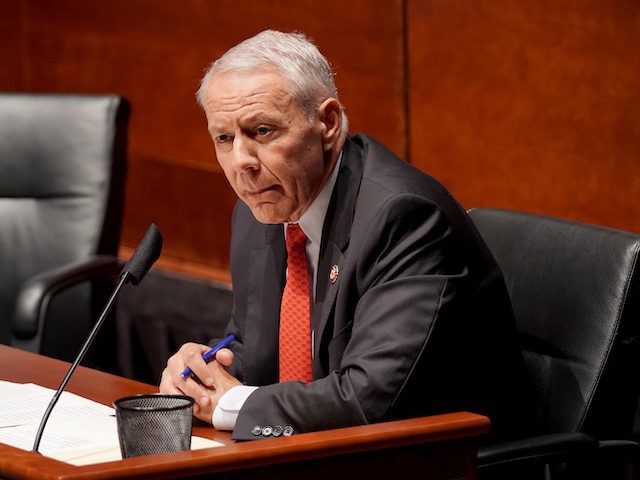Rep. Ken Buck (R-CO) will not run for reelection, the second retirement announcement Wednesday from the ranks of Republicans who opposed GOP Speaker nominee Rep. Jim Jordan (R-OH) in October.
Rep. Kay Granger (R-TX) announced hours before Buck that she would not seek a fifteenth term.
Buck, in his fifth term, kept pundits and the American people guessing in October with his evolving reasons for opposing or supporting various GOP Speaker candidates.
He ultimately blamed Jordan’s vote in January 2021 against certifying certain states’ 2020 presidential election results for opposing Jordan.
Jordan’s votes that day mirrored those of now-Speaker Mike Johnson (R-LA), whom Buck supported days after opposing Jordan.
Earlier today I announced that I won't be seeking re-election to the U.S. House of Representatives.
To my friends in Colorado, thank you for allowing me the opportunity to serve our nation. Being your representative in Washington DC has been the highest honor of my life. pic.twitter.com/FQdPVbpH46
— Rep. Ken Buck (@RepKenBuck) November 1, 2023
Buck used his farewell video shared from his official X account to lambast Republicans for denying the results of the 2020 elections.
He did not mention Speaker Emeritus Nancy Pelosi (D-CA), Democrat Leader Hakeem Jeffries (D-NY), or the scores of other Democrats who denied the results of the 2016 elections.
Jeffries, the top House Democrat, called the 2016 election “illegitimate.” He has yet to recant his statement.
REMINDER: House Democrat Leader Hakeem Jeffries is an Election Denier pic.twitter.com/ZhqkmJALlm
— RNC Research (@RNCResearch) October 17, 2023
Buck has received criticism for openly admitting his desire to seek a job at CNN. He had previously partnered with Democrats to push the Journalism Competition and Preservation Act (JCPA), which would allow the nation’s largest legacy media companies to form a legal cartel immune from antitrust law to pressure tech companies for special favors.
If passed, the bill would empower the cartel to force tech companies, through arbitration, to funnel massive amounts of ad revenue to media companies owned by the likes of Hearst and Gannett — giant corporations with billions of dollars in revenue.
The JCPA was repeatedly pushed by Democrats when they held both the House and Senate, although efforts to pass it as a standalone bill failed.
However, the JCPA lobby successfully attached the provisions of the JCPA to the National Defense Authorization Act (NDAA) in 2022 despite the fact that the bill had nothing to do with national defense. A massive blowback by Republicans stopped the JCPA from making it into the NDAA’s final draft.
Follow Bradley Jaye on Twitter at @BradleyAJaye.

COMMENTS
Please let us know if you're having issues with commenting.